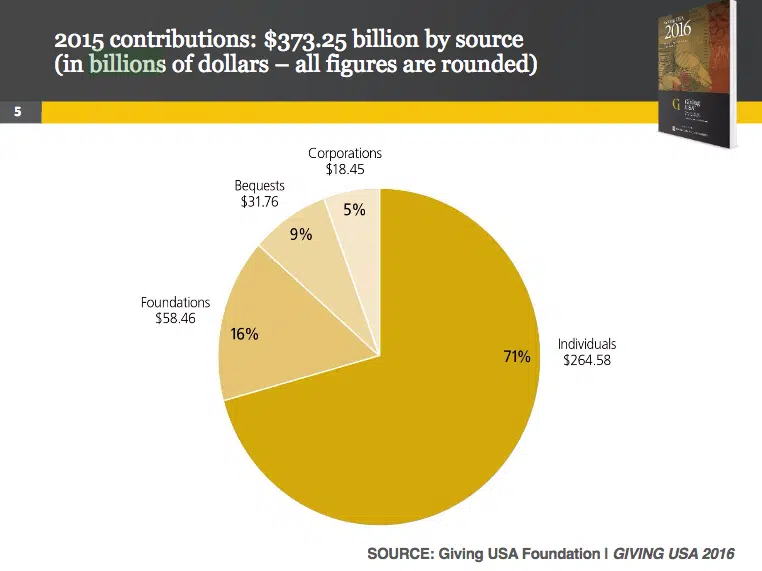7 Tips to Help Fundraisers Manage Their Time



You have to be online! You have to send more mail! Treat every donor like a major donor! Your Board wants another golf classic! People are phoning for fundraising packs and you don’t have time to train in the volunteers! Plan Christmas! Plan your summer! Plan Flag Day! Pick up the phone! Sign up for Twitter! Facebook! Google Plus! MyFace! The next big thing! Meanwhile your kid’s school has some stupid event you got roped in to and you’re neglecting your mom!
Aggggghhhhhh!!!
OK…relax…breathe…
We can do this. Let’s consider how you’re breaking up your working week and let’s try to be smart about it…
It can be helpful to consider what percentage of income is coming which methods, and what percentage of income you are aiming to source from each method, and distribute the time in each month accordingly.

However, the nature (and advantage) of a lone fundraiser and a smaller organization means you should be ready to shift resources as specific projects and opportunities arise.
So while you’re juggling everything, here’s a few tips to keep in mind to make sure you’re not missing a trick:
1. Don’t Believe The Hype
You don’t need to be an early adopter or jump on the next big thing straight away. Don’t be afraid to give it time and see if it’s worth bringing in to your fundraising mix.
Look at on-line…you’d be forgiven for thinking it’s the only way to raise money. But what the salesmen and gurus forget to tell you is that on-line donations still only account for 7% of the average non-profits income. So why spend half of your week on social media when it simply isn’t going to deliver?
You might look at the big charities out there who have huge budgets, but just because they’re spending time and money on billboards, apps and organized events, it doesn’t mean it’s right for you.
2. Prioritize Based On Your Own Strengths
Think carefully about the unique opportunities your organization has and focus on them:
3. Get Help!
We all need a bit of support! In my career I’ve found other fundraisers always more than happy to share…why make the same mistakes someone else has already made? Find local fundraiser meet-ups, reach out to others, join on-line communities. Ask for templates, advice, samples! Don’t start from scratch when you don’t have to.
And get support from interns and fundraisers…people who want to help and just need a bit of guidance. In the long-term a few extra hands on deck can save you huge amounts of headache and free up your time to focus on more specialized areas.
4. Don’t Be Afraid To Say No
Do your Board wants you to organize another golf classic simply “because people love it”? Well if it barely broke even then it’s time to put your foot down and cut it out of your fundraising plan. It’s incredible how many fundraising events stay active out of habit, rather than because it’s the most profitable way for you to spend your time.
Likewise, you might feel pressured by a potential funder or corporate sponsor to roll out something that is going to take up lots of your precious time. Don’t be afraid to lose a little bit of money if it frees up your time to work on something more lucrative.
5. Remember That All Fundraising Overlaps
Corporate partnerships will come from your individual supporters, and vice versa. Your biggest donor might also be your best fundraiser. Social media content that works well and always work well in your e-mails, which in-turn work well in your printed newsletter.
Don’t let each of your fundraising get siloed. Instead, remember that it’s all integrated and be aware of opportunities that arise from every interaction.
6. Use Free Tools, Structure and Repetition
Not everything has to be a time-suck. For example, something like social media can be run effectively in less than 1 hour a week.
The key message is that repetition in fundraising works. A strong appeal last year can be used this year word-for-word and it’ll still work.
That goes for off-line too…once you find a core bank of good, effective stories on the work you do then don’t be afraid to share the hell out of them! You might get bored of them, but for people outside of your organization they are timeless, effective stories that they might have missed the first time.
7. Get The Basics Right and The Money Will Follow
Caoileann Appleby, a great fundraiser, says “The things that matter most to donors don’t depend on big budgets and lots of staff.”
Get your thank you process working. Write with emotion…write like a human. Focus on your organization’s circle of people who already care about you rather than wasting time trying to get the world’s attention.
And stop being so hard on yourself. Some days it’s okay if you only help one person, and some days it’s okay if that one person is you.
Fundraising From Scratch – A practical guide to boosting the fundraising and income of your non-profit, organization, charity, cause or crowdfunder –> Register for the course <<here>>

Comments